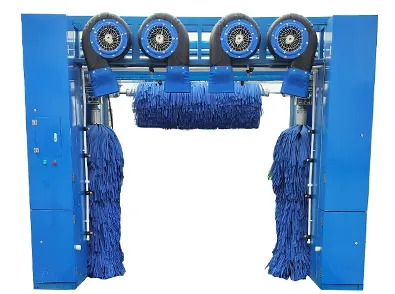
- Afrikaans
- Albanian
- Amharic
- Arabic
- Armenian
- Azerbaijani
- Basque
- Belarusian
- Bengali
- Bosnian
- Bulgarian
- Catalan
- Cebuano
- Corsican
- Croatian
- Czech
- Danish
- Dutch
- English
- Esperanto
- Estonian
- Finnish
- French
- Frisian
- Galician
- Georgian
- German
- Greek
- Gujarati
- Haitian Creole
- hausa
- hawaiian
- Hebrew
- Hindi
- Miao
- Hungarian
- Icelandic
- igbo
- Indonesian
- irish
- Italian
- Japanese
- Javanese
- Kannada
- kazakh
- Khmer
- Rwandese
- Korean
- Kurdish
- Kyrgyz
- Lao
- Latin
- Latvian
- Lithuanian
- Luxembourgish
- Macedonian
- Malgashi
- Malay
- Malayalam
- Maltese
- Maori
- Marathi
- Mongolian
- Myanmar
- Nepali
- Norwegian
- Norwegian
- Occitan
- Pashto
- Persian
- Polish
- Portuguese
- Punjabi
- Romanian
- Russian
- Samoan
- Scottish Gaelic
- Serbian
- Sesotho
- Shona
- Sindhi
- Sinhala
- Slovak
- Slovenian
- Somali
- Spanish
- Sundanese
- Swahili
- Swedish
- Tagalog
- Tajik
- Tamil
- Tatar
- Telugu
- Thai
- Turkish
- Turkmen
- Ukrainian
- Urdu
- Uighur
- Uzbek
- Vietnamese
- Welsh
- Bantu
- Yiddish
- Yoruba
Affordable Self-Service Car Wash System Pricing Options Available Now
Understanding the Costs of Self Car Wash Systems
In the modern world, convenience and efficiency are highly valued, especially when it comes to car maintenance. One innovative solution that has gained traction is the self car wash system. This approach allows car owners to wash their vehicles at their own pace, often resulting in a cleaner car and a more enjoyable experience. However, the question remains what are the costs associated with setting up and operating a self car wash system? In this article, we’ll explore the factors that influence the price of self car wash systems and what potential users need to consider before making an investment.
Initial Investment and Equipment Costs
The first aspect to consider is the initial investment required to set up a self car wash system. The cost can vary significantly based on several factors, primarily the type of equipment and the scale of the operation. For instance, a basic system might include pressure washers, soap dispensers, vacuum stations, and credit card terminals.
On average, a self-service car wash bay can cost between $30,000 and $100,000 or more. Basic pressure washing equipment might start around $1,500, while high-end, commercial-grade equipment can exceed $10,000. Additionally, costs for the construction and installation of the car wash facility itself can range from $10,000 to over $100,000, depending on the size and design of the building.
Operating Costs
Once the initial setup is complete, there are ongoing operational costs to consider. These include water and electricity bills, maintenance of the equipment, cleaning supplies, and potential staffing costs if you choose to hire personnel for maintenance or customer assistance.
Water costs can be particularly significant, especially in areas where water prices are high. Some self-service car wash systems use low-pressure nozzles and water-efficient methods to minimize consumption, which can lead to substantial savings over time.
self car wash system price

Electricity is another recurring cost, particularly for the automatic systems that offer added features like foaming brushes and air dryers. Keeping the facilities well-maintained is also crucial to keep everything running smoothly. Regular equipment checks and repairs can add to ongoing expenses, so it's wise to budget for these costs.
Location and Market Demand
Location plays a critical role in determining the price of self car wash systems. High-traffic areas, especially those near shopping centers, residential neighborhoods, or highways, can yield higher returns and justify more significant investments in better equipment and facilities. However, these prime locations often come with higher rental fees or property costs, impacting the overall budget.
Market demand is another factor to consider. In regions where car ownership is high and people are looking for convenient ways to maintain their vehicles, a self-service car wash could be a profitable venture. Researching the local market can help investors determine if the demand justifies the costs involved.
Additional Revenue Streams
To maximize profitability, many self car wash operators explore additional revenue streams. For instance, offering detailing services, selling car care products, or providing memberships can enhance income. These supplementary offerings can help offset the initial setup and ongoing operational costs, turning a basic car wash into a more lucrative business.
Conclusion
Investing in a self car wash system can be a rewarding venture, but it’s essential to understand the associated costs fully. From the initial setup expenses and ongoing maintenance to location and market dynamics, each factor plays a role in determining the ultimate financial feasibility. For car owners seeking a convenient cleaning solution, or for entrepreneurs looking to tap into a thriving market, careful planning and research are crucial. With the right approach, a self car wash system can prove to be not only a valuable service but also a smart financial investment.
-
Integrating Aqua Tunnel Car Wash in Shopping CentersNewsJun.24,2025
-
Gas Station with an Auto Car Wash MachineNewsJun.24,2025
-
Efficiency in Your Aqua Tunnel Car Wash: Power & Water-SavingNewsJun.24,2025
-
Car Wash Business with Advanced Auto Car Cleaning MachinesNewsJun.24,2025
-
Balancing Setup Costs with Aqua Tunnel Car WashNewsJun.24,2025
-
Aqua Tunnel Car Wash: Eco-Design for the Energy-Savvy EntrepreneurNewsJun.24,2025



